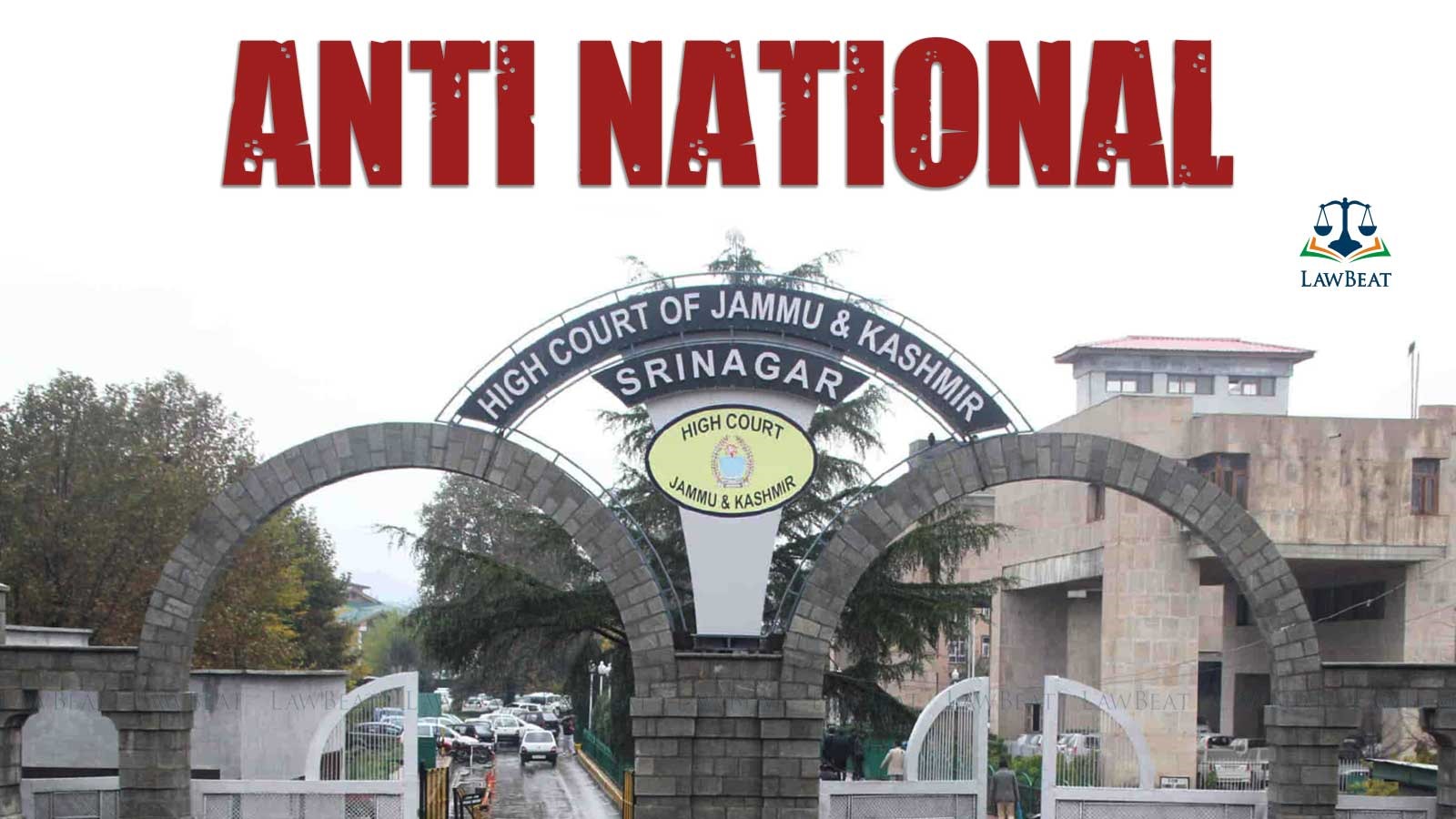Government Contracts Cannot Be Denied Due to Involvement of Relatives In Anti-National Activities: J&K and Ladakh HC

The court said “The restriction on the fundamental right to carry on trade or business guaranteed under Article 19(1)(g) of the Constitution, even if it is reasonable, cannot be imposed by the Government through executive fiat”
The High Court of Jammu & Kashmir and Ladakh, in a significant ruling, has held that merely because one or more relatives of the petitioners were involved in anti-national activities in the early 1990s or thereafter cannot be a ground to deprive them of their right to enter into contracts with the Government for the execution of various public works of the Government Departments.
Justice Sanjeev Kumar, presiding over the court, made the decision on a batch petitions, declaring the government's decision to exclude certain contractors from future contracts as unconstitutional. The court said “the impugned communication not only violates the fundamental right of the petitioners guaranteed under Article 19(1)(g) of the Constitution but it has also the effect of depriving the petitioners of their right to livelihood implicit in Article 21 of the Constitution.”
The case pertains with the petitioners, registered as contractors under the J&K Registration of Contractors Rules, 1969, challenging the government’s directive dated March 15, 2023. This directive, issued by the Commissioner/Secretary of the Department of Rural Development and Panchayati Raj (respondents), instructed the Director of the Rural Development Department to take action against the petitioners based on a report from the Criminal Investigation Department (CID). The report dated February 15, 2023, claimed the petitioners failed a security test due to their relatives' involvement in past subversive activities.
The court emphasised that no authority can subvert constitutional provisions, and the fundamental rights to life, liberty, and livelihood must be upheld. “The fundamental rights, which form the bedrock of rule of law, cannot permitted to be tampered with in the manner it has been done by the Commissioner/Secretary to Government, Department of Rural Development and Panchayati Raj,” the court stated.
The court also observed that the right to life and liberty guaranteed under Article 21, and the right to carry on trade or business guaranteed under Article 19(1)(g) of the Constitution, are essential elements of the Constitution's basic structure. These rights cannot be altered, even through constitutional amendments by Parliament.“therefore, the action envisaged under the impugned communication is totally unacceptable. Such action of the respondents, whatever be the intention behind it, cannot be countenanced in law,” it held.
The court also said that “Be that as it may, to such a blatant violation of fundamental rights of the citizens, this Court cannot remain a mute spectator,” highlighting that the Government of Jammu and Kashmir has promulgated rehabilitation policies aimed at rehabilitating ex-militants and surrendered militants. These policies were intended to facilitate the return of ex-militants who had crossed over to POK/Pakistan for training in insurgency but later gave up insurgent activities due to a change of heart. Similarly, a policy was promulgated for the rehabilitation of surrendered militants, providing them with cash assistance and vocational training.
The court underscored that these rehabilitation policies were designed to reintegrate misguided youth and others who had strayed into militancy but later realised their mistake. The impugned communication issued by the then Commissioner/Secretary to Government Rural Development Department and Panchayati Raj was seen as a direct attack on these thoughtful and wise decisions made by the Government to bring peace and normalcy to the then State of Jammu and Kashmir, now the Union Territory of Jammu and Kashmir.
The court further said “The restrictions on the fundamental right to practise any profession or to carry on any occupation, trade or business guaranteed by Article 19(1)(g) of the Constitution of India cannot be imposed otherwise than in accordance clause (6) of Article 19. Such restriction must be reasonable, in general public interest and imposed by law. The restriction on the fundamental right to carry on trade or business guaranteed under Article 19(1)(g) of the Constitution, even if it is reasonable, cannot be imposed by the Government through executive fiat.”
Consequently, the Commissioner/Secretary's directive was deemed an overreach by the court, subverting the statutory framework and infringing on the petitioners' constitutional rights without due process.
“I have not been able to discern the thought process that might have gone into the mind of the then Commissioner/Secretary to issue such communication. Was it intended to make the petitioners to starve or take up activities prohibited by law. They were debarred from executing works of the Rural Development Department on a flimsy ground that their uncle or even father’s uncle 10/20 years back were involved in anti-national activities. As is evident from the CID report, most of the relatives of the petitioners named therein have either died or surrendered to make a new beginning as law abiding citizens of this Country,” the court remarked.
The court, thus, quashed the impugned communication, directing the respondents to permit the petitioners to participate in the tendering process, provided they are otherwise eligible, notwithstanding the directive debarring them.
Moreover, the court found the matter serious and held that the then Commissioner/Secretary, Department of Rural Development and Panchayati Raj, who issued the impugned communication, disregarded the law and should be proceeded against and the court directed the initiation of a departmental proceeding.
The matter has been listed before the Court on July 29, 2024 for submission of a report on the action taken within two months by the Chief Secretary.
Cause Title: Mohammad Shafi Malik v UT of J&K [WP(C) No.774/2023]
